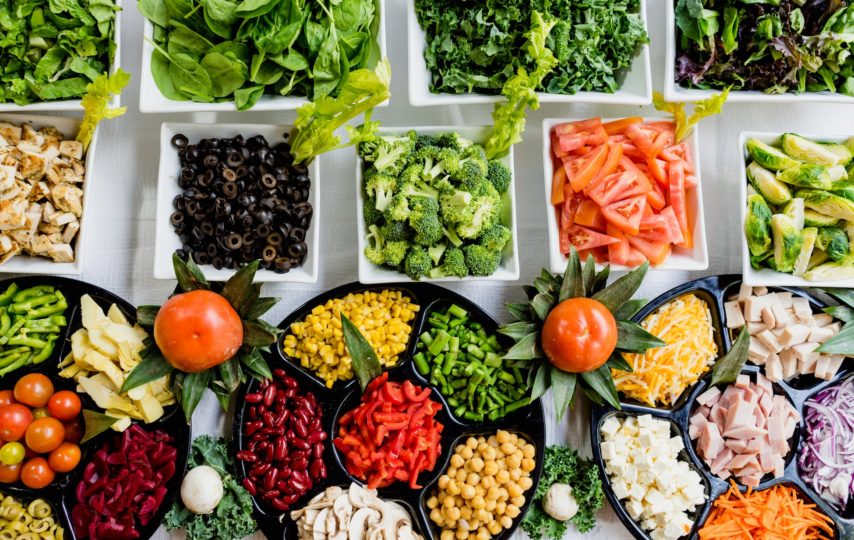Moving out of your parents’ house is mostly exciting. Yet, it can also be scary, nerve-racking, and stressful. And one of the main reasons for that is you’re just not ready. A surprising number of adolescents don’t know a thing about adult life. Laundry detergent sounds like a foreing language, and a balanced diet seems excessive to them.
Well, it’s actually quite necessary, and since you’re on your own now, you should know how to do those things yourself.
If you’re neck-deep in homework debt, delegate it to a professional college essay writing service while we tell you about keeping your diet balanced, even in college. The first lesson to remember is that unpleasant things take time and need attention.
Having a healthy diet is not good for you because someone said so. Eating well can tremendously improve your overall health, including your cognitive function. So, if you break the vicious cycle of surviving on instant noodles and coffee, you can significantly outperform your peers from college.
Divide and Conquer
Eating healthy doesn’t mean eating just vegetables or fish. Although those are healthy choices, eating proper amounts of nutrients is essential for your overall well-being. Divide your calories into carbs, fats, and proteins. Approximately 50% of your daily energy should be coming from carbs, 20% from fats, and another 30% from protein.
Keep in mind, though, that carbs can present themselves in different forms. Pasta and vegetables are technically both carbs, but they will affect your body differently, and you need a different amount of food to get full. So, don’t forget about your fibers!
The 50-30-20 ratio is not a strict measure, though; it can change because of your personal preference or depending on how busy your day is that day. Just remember that you should be burning as many calories as you’re consuming if you want to stay in the same shape you’re in.

source: https://unsplash.com/photos/gzdspwIypvw
Drink More Water
Water is great; it keeps you hydrated and gets toxins out of your body. But people often forget that we are literally made of water and should be drinking lots of it, especially during the summer months.
Get a water bottle that is easy to carry around or a fancy glass with a straw. Something that will make you want to come back to it is perfect. Make sure there’s always a glass of water next to you when you study or do your homework. The best way to start drinking water is to turn it into a habit. You can even set reminders if necessary.
Some people say that water tastes like nothing, and some specifically don’t like the flavor. Well, guess what? Your body still needs to stay hydrated. So, try adding pieces of fruit or cucumber to your glass to add some flavor to it.
Cut on Sugar
According to the US Department of Agriculture, an average American consumes about 358 calories in just sugar. This statistic is wild; no wonder the US is the most obese country.
Start with your own consumption and try to cut down on sugar. Substitute a candy bar with a banana, drink water instead of soft drinks, and become aware of all the added sugars in your everyday foods. Things like condiments and fast foods are packed with sugar. Keep in mind that marketers also use many other names for sugar, so read labels carefully and be on the lookout for those:
- high-fructose corn syrup;
- fruit juice concentrate;
- corn sweetener;
- corn syrup;
- dextrose;
- ethyl maltol;
- fructose;
- glucose.
Snack Well
Snacks can make or break your day. If you opt for a sugary snack, it will give you a quick boost of energy, but the withdrawal is going to be just as fast and very hard to recover from. Meanwhile, if you go for a healthier snack with less sugar in it, your day can take a completely different turn.
Keep seeds and nuts around instead of chocolate bars. Make your own peanut butter to control the sugar content. If you’re craving chocolate, have a dark one, not milk, and read the label to make sure it contains less sugar. Popcorn is a great whole-grain snack. If you don’t add too much butter to it, it can even be low-fat. Add some salt, pepper, and your favorite herbs to it, and you got yourself a perfect movie night snack.
Buy Smart
We often have our pantries stuffed with sugary snacks, cereal, and other things that are terrible for us. As soon as you stop buying them, it becomes much easier to stop craving those foods. Purging them from your house will make sticking to your diet much better. In fact, it will not feel like a diet eventually; it’s just a proper way to eat.
Whenever you’re going to get groceries, always have a list. It will prevent you from overspending and getting the things you don’t actually need. Another pro-tip: never go hungry. Shops target peoples’ senses in a way that we feel lost once we enter a store. You get bombarded with the smell of freshly baked bread, glossy vegetables, and ripe fruits. Stores really target the animal inside of us, so you should be very smart to go against that.
Prior to making a list for grocery shopping, make a list of food you want to cook throughout the week. Include every meal of the day you have time to cook and snacks into the list. This will give you a clearer picture of how much you need to buy and how much you actually eat. Try it several weeks in a row to see if any of the food got wasted, then, next time, buy less. Making these experiments is very important to see how much you actually eat.
Wrapping Up
Eating well is good, but maintaining a healthy diet while being a college student is very difficult. So, follow our tips to start eating better. Make sure you’re consuming the right amounts of the necessary nutrients, and don’t get confused by all the names for sugar and carbs. Increase your water intake and cut down on sugars. Substitute sweets with fruits and nuts, and your body will be grateful.













